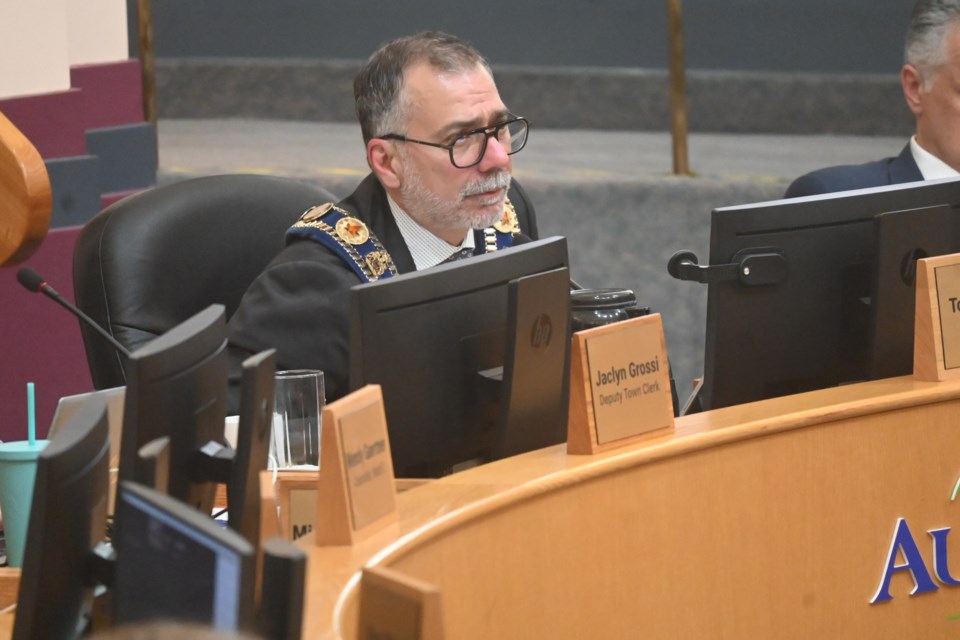For some municipal politicians in Ontario, the urge to grab the shiny bauble of "strong mayor powers" has proven too much to resist.
Newly elected Mississauga Mayor Carolyn Parrish is the latest to do so, firing that community’s top public servant, the CAO, along with other top staff soon after being sworn into office last month following her byelection win to replace Bonnie Crombie, who resigned after being elected leader of the Ontario Liberal Party.
That was done despite telling CBC News during the campaign that she “would try not to use strong mayor powers. I think the power of persuasion and general good solid policy is much stronger.”
As it turned out, it took less than a week before she apparently threw up her hands in frustration and decided to go another route.
The strong mayor powers were introduced under Premier Doug Ford in 2022. At first, they were given only to the province’s largest cities: Toronto and Ottawa.
But, beginning in 2023, they were extended to dozens of others. So far, 49 municipalities have been offered the extra powers, which allow mayors to propose housing-related bylaws and pass them with the support of only one-third of councillors, instead of a majority, as well as allowing mayors to override certain bylaws, prepare the city’s budget and, as we saw in Mississauga, fire many key staff, provided it is in the name of furthering provincial policy objectives.
The Ford government’s stated goal of this increased power was getting more houses built faster, though it might be worth pointing out home starts across the province have declined in the past two years. In fact, the province has failed to meet its housing targets every month since announcing the initiative, which would indicate maybe the problem lies elsewhere.
Opponents to strong mayor powers have called them undemocratic, since they allow bills to be passed with the support of a minority of council, and dangerous, since they could lead senior staff to tell mayors what they want to hear for fear of being fired. There were also criticisms of the provincial bill’s vagueness, giving heads of council the ability to kill bylaws that “could potentially interfere with a prescribed provincial priority.”
The province took the usual route to get municipalities to buy into its plan: bribing them with their own money. Specifically, those that agree to the strong mayor powers get extra funding from Queen’s Park, courtesy of taxpayers.
Mayors of all political stripes proved themselves unable to resist. Parrish in Mississauga is a former Liberal MP. Kevin Ashe, Pickering’s mayor and a former provincial Progressive Conservative candidate, used his strong mayor powers to take control of that municipality’s budget process, contrary to a promise he made in the previous municipal election.
Aurora Mayor Tom Mrakas used them to twice veto a pay raise for councillors. And, former Ontario NDP leader Andrea Horwath, who had said she favoured a “collaborative approach” when asked about using strong mayor powers, had a change of heart after being elected mayor of Hamilton. In March, she used her new veto power to overturn council’s decision not to build affordable housing on two parking lots.
To their credit, some mayors and municipalities have said “no” to getting strong mayor powers. Newmarket Mayor John Taylor rejected them outright, saying the Ford government's housing targets for the municipality weren't feasible given sewage capacity constraints. Innisfil Mayor Lynn Dollin, a former head of the Association of Municipalities of Ontario, has been vocal in her opposition, being quoted as saying, “Our current council structure serves the best interests of our residents and allows for meaningful community engagement.” In the end, she was given the powers by the province but, to my knowledge, has not used them except for routine approval of bylaws.
In Barrie, Alex Nuttall was asked about using strong mayor powers during the 2022 election campaign. His somewhat vague answer: “My vision for Barrie is to have a council that is collaborative and works.” Asked again, he offered up a bit of a non-committal word salad.
“As we move forward, you know, I think that it’s steady as she goes — a collaborative, co-operative council and, you know, some of the strong mayor powers are legislative in context in the sense that there’s no choice, it is going to affect how we do business, and some of them are obviously a choice for the mayor when and how to execute.”
In any event, Nuttall has not used them to date, apart from the routine approval of bylaws.

